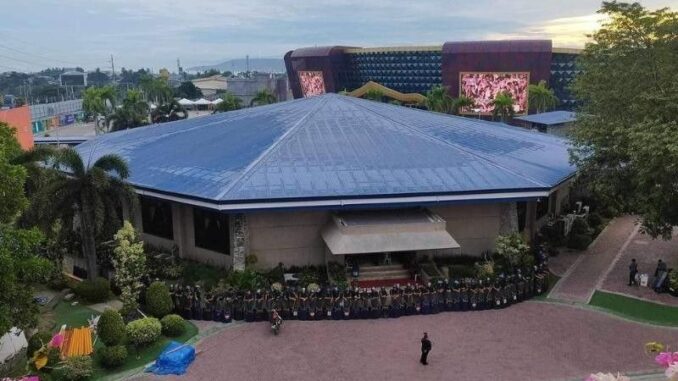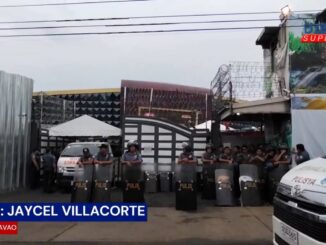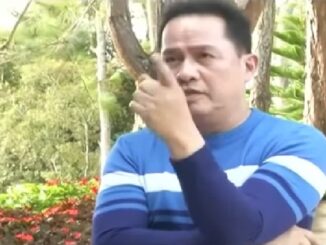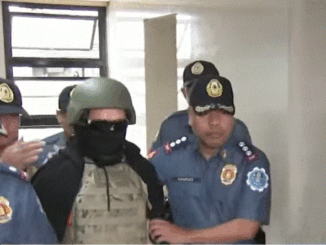
MANILA, Philippines — After giving in to requests from followers of Apollo Quiboloy to suspend the search for their leader so they could celebrate their group’s 39th anniversary on Sunday, police resumed yesterday the hunt for the pastor “amid stiff resistance” in his vast Davao City property, where he is believed to be hiding in a network of underground tunnels.
Police have been searching for Quiboloy since Aug. 24 to serve warrants for his arrest as well as those of his four co-accused for charges of sexual abuse and human trafficking.
Police Regional Office (PRO) XI spokesperson Catherine dela Rey told reporters that the leadership of Quiboloy’s Kingdom of Jesus Christ (KOJC) had requested for a temporary halt to police operations to arrest their leader to allow them to celebrate their anniversary last Sunday.
While the police agreed to suspend their operation, they did not leave the KOJC compound.
Dela Rey said the three and a half hour “very peaceful” anniversary celebration started with worship and was highlighted by a speech by Vice President Sara Duterte.
“There were no untoward incidents related to the 39th anniversary celebration,” she said.
The PNP also said they provided security to KOJC to ensure the safety of attendees in the event.
“This just shows that the PNP respects their religious activities inside,” Dela Rey said.
She clarified that the presence of the Vice President at the KOJC anniversary did not affect their operations. “We respect her presence because all of us can support any group,” she said.
Yesterday, however, KOJC again attempted to stop law enforcers from fanning out across the vast estate to locate the religious leader.
“We are facing stiff resistance from KOJC members who have blocked access points, installed large scanners and are closely monitoring anyone entering the area,” Philippine National Police (PNP) spokesperson Col. Jean Fajardo said yesterday in a briefing at Camp Crame.
Fajardo said Quiboloy’s complex network of tunnels and bunkers was apparently designed to withstand both man-made and natural disasters.
She said the PNP had to request for the opening of additional gates to give police and their equipment easier access to the compound, estimated to be 30 hectares.
Still in KOJC compound
Despite reports from some quarters, including from the Vice President, that Quiboloy had already left Davao City, Fajardo said the PNP remains confident he is still inside the KOJC compound.
“Based on information from our informants and the signals detected by our equipment, we believe there are people present in the underground facility,” Fajardo said.
“We are about 50 percent through with our search, but the continued blocking of gates and buildings by KOJC has further delayed our operations,” she said.
On concerns about the use of force to arrest Quiboloy, Fajardo reiterated that the PNP’s actions were consistent with Section 11 of Rule 113 of the Rules of Court, which allows officers to break into buildings or enclosures they have been barred from entering, if they believe the person they are seeking is inside.
Fajardo also dismissed claims by KOJC supporters that Quiboloy’s life would be in danger if he surrenders.
“There are no threats to his life that we are aware of. Our chief PNP, Gen. Rommel Francisco Marbil, has personally assured Quiboloy’s safety if he chooses to surrender,” the PNP spokesperson said.
She again appealed to his followers to let the law take its course and that they “must not forget the serious charges he faces.”
Fajardo noted that they would not leave the KOJC compound until every part of it has been thoroughly searched.
“We are determined to complete this mission, and we appeal to KOJC leaders to cooperate so we can conclude this as swiftly as possible,” she said.
Nothing wrong with TPO
In a post on Meta (Facebook), KOJC lawyer Israelito Torreon said Quiboloy can still seek protection from a Davao City court even if his cases have already been transferred to Metro Manila.
He was reacting to Justice Secretary Jesus Crispin Remulla’s pronouncements that the Department of Justice intends to file a case against the Davao City judge who issued a temporary protection order against policemen searching for the fugitive KOJC leader.
Remulla said the Davao City RTC no longer has jurisdiction over cases against Quiboloy.
However, according to Torreon, the Davao court’s TPO is not “judicial interference” since the petition was filed by third parties, and not those involved in Quiboloy’s cases.
“The order never stated that third persons who are victims of wanton disregard of the rule of law in the implementation of a warrant of arrest would likewise be affected by such order, such that they can no longer file cases in RTC Davao in case their constitutional rights are violated,” he said.
Torreon also said the TPO and the arrest warrant against Quiboloy could “co-exist,” as the arrest warrant empowers the police to arrest the accused in a manner that “should be reasonable.”
“In other words, the writ of amparo therefore cuts off whatever excesses or overreach that may be committed by the police in the implementation of the warrant of arrest,” he said.
The Supreme Court earlier said the TPO should not stop authorities from serving the arrest warrant against Quiboloy.
Extradition
In an interview with “Storycon” on One News, a former president of the Integrated Bar of the Philippines (IBP) said the Marcos administration cannot promise Quiboloy that he will not be extradited to the US, given the country’s existing extradition treaties.
“Legally, not even the President can give that assurance because he’ll be breaking the law. We have extradition treaties,” former IBP national president Domingo Cayosa said.
Quiboloy’s camp reportedly requested for a written declaration from the President and Remulla that he would not be extradited to the US if he surrenders to authorities.
Aside from charges he is facing in the Philippines, Quiboloy is also wanted in the US for separate cases of sex abuse and human trafficking charges.
Over the weekend, Justice Undersecretary Raul Vasquez said that Quiboloy will not receive any special treatment from the government in case he surrenders.
According to Cayosa, Quiboloy’s extradition is not automatic and Philippine authorities still have to verify if the existing extradition treaties apply.
He also agreed to the legal position that it is better to let the country’s justice system proceed with the local cases first before extraditing him.
“I think that will be more proper – that he will be tried here first, then later on extradited,” said Cayosa.
“We have the control. We have custody of the accused (once he’s arrested) … It’s really a discretion on the part of the government,” he added.
Cayosa also said there is no “time limit” on the arrest warrants issued by the two local courts and the Senate against Quiboloy. — Janvic Mateo, Daphne Galvez, Cecille Suerte Felipe





Be the first to comment